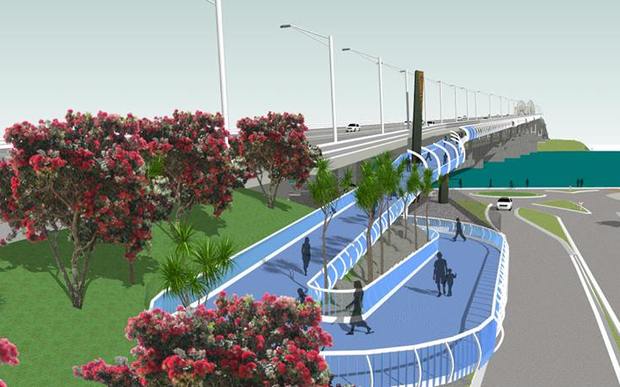Table of Contents
Dear Editor
I recently made a submission to NZTA (and to various government ministers) regarding the Auckland Harbour Bridge Shared Path (‘SkyPath 2.0’). The submission contains details of what I consider to be substantive and serious flaws and omissions regarding the Auckland Harbour Bridge Shared Path Single Stage Business Case methodology and the shared pathway design.
I believe that NZTA has presented a very misleading case to the public, and therefore thought that you might be interested in the contents of my submission as the project will likely result in the wastage of a large amount of taxpayer/ratepayer money. Indeed, some of the research referenced in the submission is applicable to cycle paths and related infrastructure spend in general, not just SkyPath.

In particular, I submitted evidence that:
- The stated problems claimed in the business case are unquantified and unsubstantiated.
- Projected cycle and pedestrian usage estimates and investment objectives are based on assumptions, flawed math, and lack sufficient statistical foundation.
- A large body of evidence from existing research into cycling behaviours and cycling infrastructure spend appears to have not been consulted or was ignored.
- Based on existing research, the estimated pedestrian and cyclist usage rates appear to be unrealistic and wildly optimistic.
- The demand forecasts provided by NZTA are erroneous and misleading due to major differences in gradient, distance and rainfall between the AHB shared path and the case studies/examples cited in the NZTA business case.
- The business case does not take into account research evidence regarding the effects of steep inclines, commute distance, travel time, or precipitation on usage volumes.
- While Austroads is cited as the design standards reference, there are a number of serious and fundamental breaches of the Austroads design specifications, specifically:
- Pedestrian walkway design parameters relating to gradient and distance are not taken into account.
- Cycle pathway design parameters relating to uphill cycling are not taken into account.
- Cycle pathway design parameters relating to the hazards and safety of downhill cycling are not taken into account.
- The implications of the design modifications required to conform to the Austroads design standards I believe represent major obstacles and cost challenges to the successful design and construction of the Auckland Harbour Bridge Shared Path – which in turn increases the risk of another cost blowout.
Kind regards,
Concerned Aucklander
If you enjoyed this BFD article please consider sharing it with your friends.
Send your letters to the Editor to sb at thebfd.co.nz
Please put Letter to the Editor in the subject line.









